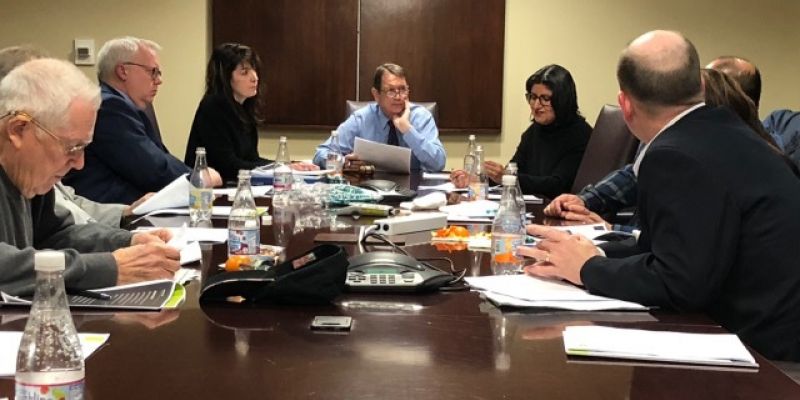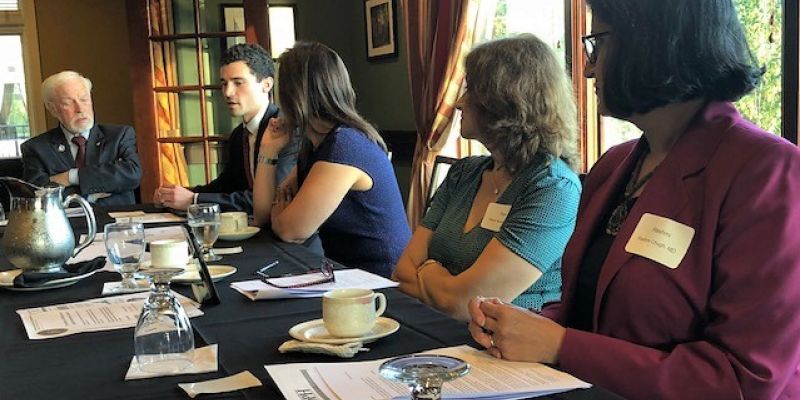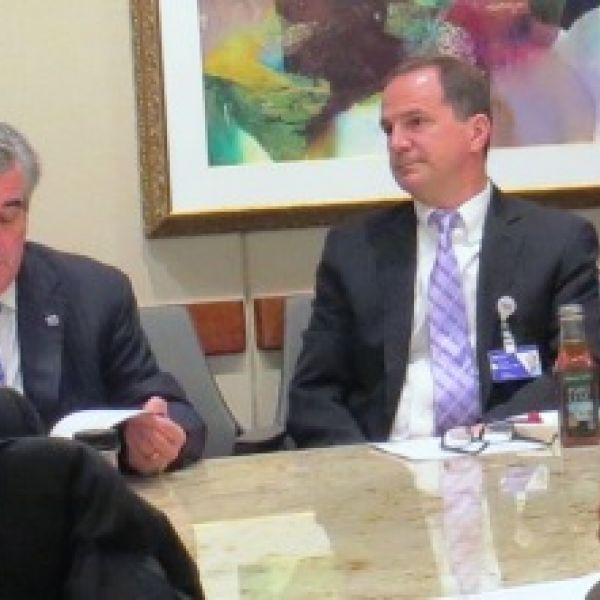"This fall nothing can be more important than to try to increase the American public's decision to embrace the flu vaccine with confidence," Centers for Disease Control and Prevention (CDC) Director Robert R. Redfield, MD, said in a recent interview. "This is a critical year for us to try to take flu as much off the table as we can."
To help meet the goal, the CDC ordered 9.3 million doses of the flu vaccine to be distributed to those who are uninsured. In a typical year, the CDC only orders and distributes a half-million doses.
Public health officials fear the implications of an overloaded health care system if flu and COVID-19 simultaneously send people for care. "When the health system gets overwhelmed, we find that with COVID-19, this is where the mortality seems to be the greatest," Doctor Redfield said.
Typically slightly less than 40% of adults get the flu vaccine. Those rates are even lower in some communities and the CDC is working to boost vaccination rates in African American, Latino and Native American communities. With studies showing that COVID-19 has hit communities of color harder than white communities, higher flu vaccination rates are especially important to help ease the disparities.
On May 25, 2020, a 46-year-old unarmed Black man was killed by a Minneapolis police officer while a bystander filmed critical portions of the event. During the last minutes of his life, with the policeman's knee pressed against his neck, George Floyd uttered the words, "I can't breathe."
These words became the rallying cry for protests throughout the United States and in cities across the globe. The phrase was familiar because in 2014 another Black man, Eric Garner, was killed by another policeman. While in a choke hold, Mr. Garner pleaded "I can't breathe" 11 times before dying.
"I can't breathe" have been the dying words of at least 70 victims of police violence in the United States, according to a 2020 report in The New York Times.
When someone says "I can't breathe" those present should react to help. The outrage after these deaths resulted from the arresting officers ignoring the victims' words.
The "rule of threes" has been used as a rough guide for how long a person can live without three of our basic life needs. A person will die if deprived of food for three weeks, and water for three days, but oxygen for only three minutes.
Most people can hold their breath for somewhere between 30 seconds and two minutes; but death will occur within three and 10 minutes if a person is deprived of oxygen for that period of time. Mr. Floyd's neck was compressed for eight minutes and 47 seconds.
Life and breath go hand-in-hand. The COVID-19 pandemic is deadly because when the virus infects the lungs it causes an acute respiratory distress syndrome. At the same time we watched Mr. Floyd die because he could not breathe, thousands of people throughout the country were dying because they could not breathe.
My regret is that we will likely cure the COVID-19 pandemic much sooner than we will cure the cause of Mr. Floyd's and Mr. Garner's deaths. May we come to appreciate every precious breath of life and help to ensure that all human beings can enjoy that privilege.
Being a student during COVID, I battled with this new reality of having an endless amount of time on my hands with nothing to do, yet no way to help. Being accustomed to a high-intensity, fast-paced environment, it was challenging to transition away from rotations and just sit at home unable to contribute. After enduring this new lifestyle for a number of weeks, I felt disoriented, the days meshing together.
Additionally, the transition to online learning proved disorganized; there was no time for school administration to prepare for immediately implementing a new learning model. That led to communication lapses, lack of clear directives, and extended waiting times for IT to resolve technical issues.
With graduation and match week rightfully cancelled for the greater public good, I missed out on those momentous occasions. Conversely, it allowed for a more personal and quiet celebration with family which I found to be a blessing in itself. Nonetheless, it was still shocking to have such an abrupt and unceremonious end to my schooling. I had never considered that 21 years of school would end with emails stating we were off rotations and congratulating me on graduating. It was jarring.
My experience with transition to residency, on the other hand, was seamless. COVID interrupted a psychiatry rotation and then I started my psychiatry residency on an inpatient psychiatry service – it was as though I hadn't missed a beat. I recognize, however, that not everyone was so fortunate; several incoming interns were thrown into demanding services that they were 3-plus months of quarantine underprepared for. Should we have had more orientation training regarding adjustments for COVID? Absolutely.
As a resident not working at the forefront, COVID has not really impacted me. Speaking with residents currently on critical care rotations treating COVID patients, however, I understand how isolating and daunting that must feel. And the inability to see loved ones during the small breaks allotted in residency training out of fear of exposing them is a reality I will know soon enough.
Additionally, the transition to online learning proved disorganized; there was no time for school administration to prepare for immediately implementing a new learning model. That led to communication lapses, lack of clear directives, and extended waiting times for IT to resolve technical issues.
With graduation and match week rightfully cancelled for the greater public good, I missed out on those momentous occasions. Conversely, it allowed for a more personal and quiet celebration with family which I found to be a blessing in itself. Nonetheless, it was still shocking to have such an abrupt and unceremonious end to my schooling. I had never considered that 21 years of school would end with emails stating we were off rotations and congratulating me on graduating. It was jarring.
My experience with transition to residency, on the other hand, was seamless. COVID interrupted a psychiatry rotation and then I started my psychiatry residency on an inpatient psychiatry service – it was as though I hadn't missed a beat. I recognize, however, that not everyone was so fortunate; several incoming interns were thrown into demanding services that they were 3-plus months of quarantine underprepared for. Should we have had more orientation training regarding adjustments for COVID? Absolutely.
As a resident not working at the forefront, COVID has not really impacted me. Speaking with residents currently on critical care rotations treating COVID patients, however, I understand how isolating and daunting that must feel. And the inability to see loved ones during the small breaks allotted in residency training out of fear of exposing them is a reality I will know soon enough.




